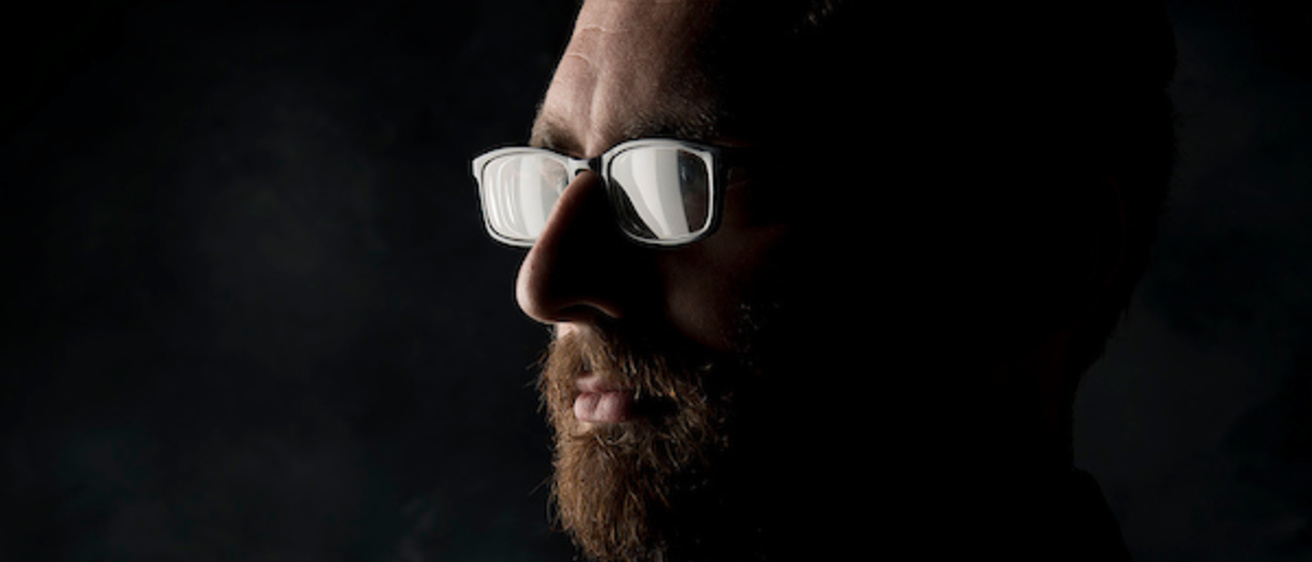What started as a research project for class became a summer-long fascination for University of Iowa junior William Simpson.
After researching the Scattergood Hostel in West Branch, Iowa—a former home for refugees escaping Nazi Germany—for a history course last spring, Simpson went on to complete an independent study of Scattergood throughout the summer. He created a virtual exhibition from his findings for Old Capitol Museum’s website as part of the ongoing German Iowa and the Global Midwest exhibit.
Simpson, a history major from Dubuque, began researching Scattergood in history professor Elizabeth Heineman’s Germany Since 1914: Weimar, Hitler & After course. However, his interest in the material pushed him to continue researching, which meant frequent visits to the State Historical Society of Iowa, located in Iowa City.
“It was such an interesting story, and every day I went I would discover something new,” says Simpson. “The archives already had a collection of items on Scattergood, so it was mostly making my way through that collection, writing down notes about the hostel, and as I went along, seeing where everything started connecting into this amazing story.”
The Scattergood Hostel operated as a temporary home for German refugees from 1939 to 1943. Simpson says the story interested him because it challenged his perceptions about World War II refugees.
“The refugees at Scattergood were not what many would necessarily expect refugees fleeing Germany to be,” says Simpson. “I thought that they were going to be primarily Jewish, fleeing Germany because of religious or racial persecution, but a lot of the refugees were highly trained professionals who left for political reasons.”
“If you tell a story about a small rural society that brought in refugees from Europe and took care of them, it sounds nice. But stories have a different feeling to them when you realize that they happened and that real people actively made the decisions you’re reading about.”
Scattergood, which was operated by the American Friends Service Committee, worked to integrate the refugees into American life and help them become productive members of society. This included learning English, learning how to drive—which was uncommon in German cities at the time—and professional training in various fields. Scattergood took in 185 refugees—who were called “guests” to avoid stigmas attached to the word “refugee”—during its four years of operation. Despite the program’s good intentions, there were many growing pains for the Germans at Scattergood.
“There was more to this than a simple heartfelt story where Americans took in refugees and took care of them,” says Simpson. “It’s easy to kind of gloss over the issues they faced over here, and I wanted to bring those issues to light.”
One issue was that refugees were forced to stop speaking German, even in their private lives, which made many of them feel like they were losing part of their identity, Simpson says.
While refugees also were taught job skills that prepared them to join the American workforce, they often were prepared for and forced to accept jobs that required far less training than the professions they had had in their home country.
“One story that sticks with me is about this man who was a professor back in Europe,” says Simpson. “Upon leaving Scattergood they gave him a job as a ski instructor up in Minnesota. It took nowhere near the same level of expertise.”
Adjusting to rural life was difficult for many refugees, who were accustomed to the urban lifestyles of Frankfurt and Munich. The closest town to Scattergood was West Branch, which had a population of 600 people at the time. This change added another layer to the culture shock.
“This isn’t to say they were unhappy but just to acknowledge that there were bumps along the road, and it wasn’t a seamless transition into American life,” says Simpson. “By most accounts, the guests at Scattergood reflected on their time there favorably.”
As Simpson finished his research, Heineman coordinated with the United States Holocaust Memorial Museum for Simpson to contribute to their History Unfolded project as a citizen historian. Heinemann thought the project, which encourages those who aren’t history PhDs or museum professionals to visit their local historical databases and find information related to major events, was perfect for Simpson.
In September, the USHMM website published Simpson’s blog post, titled “A Rookie's Guide to Archival Research,”which details his own experiences conducting research on the Scattergood Hostel.
Simpson also will present his work at the Obermann Humanities Symposium on Oct. 7 as part of a panel of undergraduate scholars. The conference, German Iowa and the Global Midwest (Oct. 6–8), will bring together leading international experts on German immigration and German-American life in the Midwest.
In the future, Simpson says he is interested in compiling a complete history of Germany, from the medieval period to the present day.
“I love doing these kinds of research projects, and I want to continue doing them in the future,” he says. “I’ve been giving graduate school more and more thought as a next step.”
Simpson says the more he focuses on history, the more he knows he chose the right field.
“If you tell a story about a small rural society that brought in refugees from Europe and took care of them, it sounds nice. But stories have a different feeling to them when you realize that they happened and that real people actively made the decisions you’re reading about,” says Simpson. “I think that’s what I like about history. There are so many stories that sound amazing, but they’re real.”
